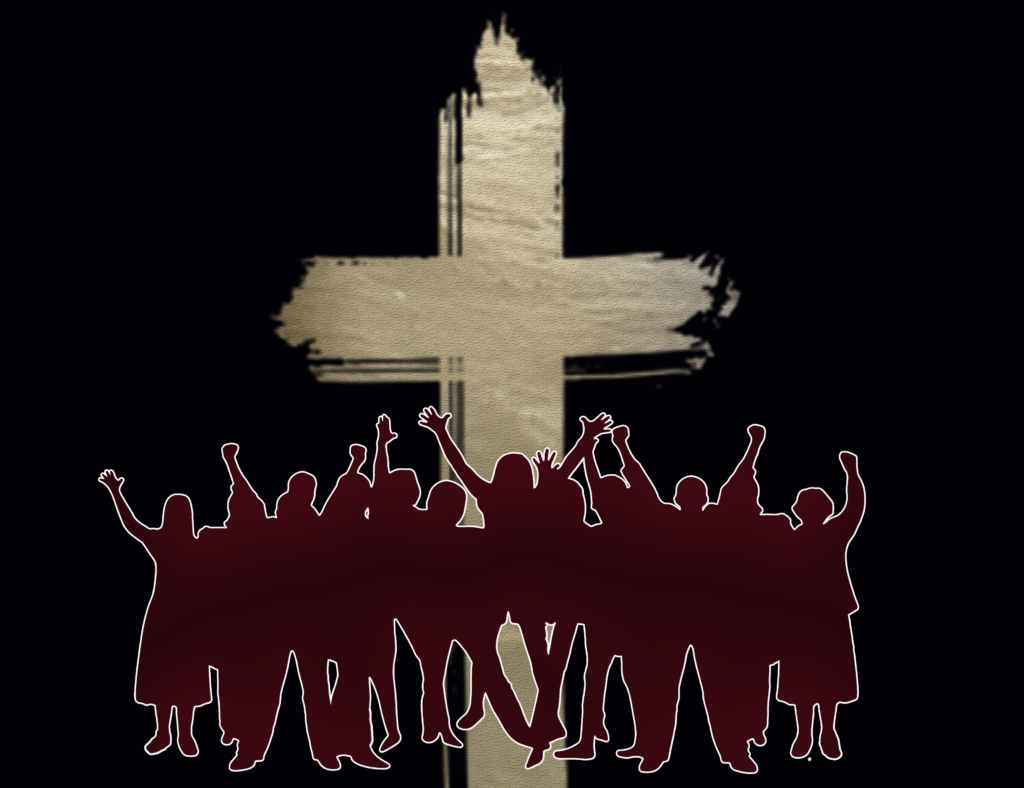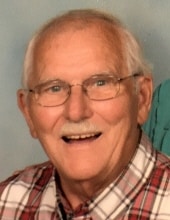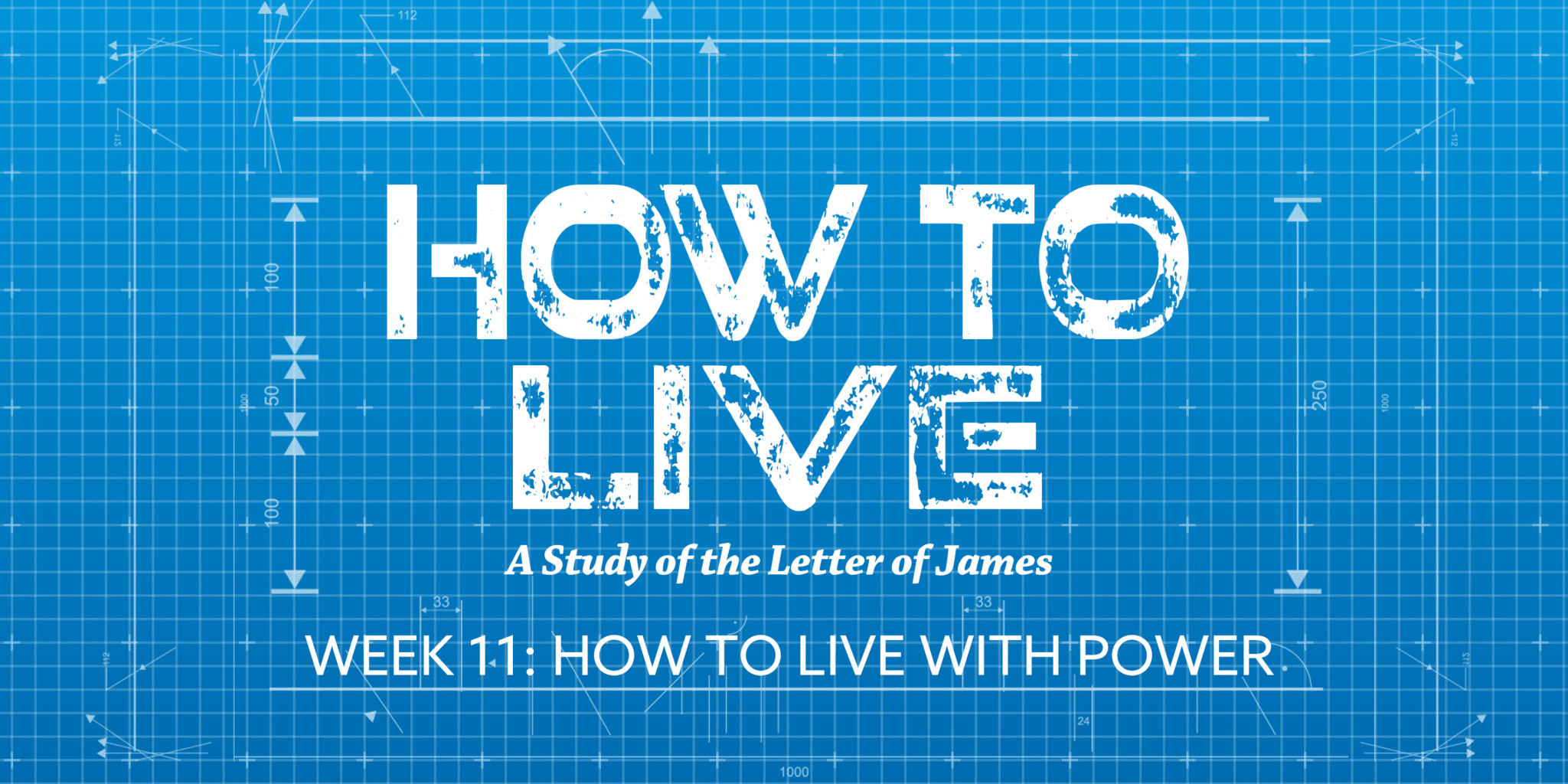Pastor Craig Carter
The primary message in the Letter of James is that Christian faith should be demonstrated through Christian action. It’s not enough to know the right thing to do, real followers of Jesus actually do it.
So the key verse is found in chapter one, verse 22: Don’t just listen to God’s word. You must do what it says. (James 1:22a NLT)
James argues against a brand of Christianity that simply accumulates biblical knowledge. It’s something I believe is commonplace today as we seem to have developed what I like to refer to as “alien believers.”
Do you remember the 1977 movie, Close Encounters of the Third Kind? UFO’s have invaded our planet and at the end of the movie, contact is made with the alien creatures. They emerge from the mothership and have enormous heads and spindly bodies.
Their physical make-up is represented that way because they’re so advanced in their intellectual capacity they don’t need strong bodies to perform manual labor.
It seems to me that many Christians look a lot like those aliens. They have big heads filled with all sorts of biblical facts, but weak little bodies that are able to accomplish little or nothing for God’s Kingdom.
James makes it very clear that’s not what a real Christian looks like. But, because of his emphasis on doing, another false portrait emerges. It’s what I call “muscle man faith.”
This view thinks of a Christian as someone who tackles every obstacle and takes on every situation with a “can do” attitude and maximum effort. It involves doing things ourselves and leaving little or no room for God. It results in a “works-based religion” that has caused many to question the validity of James’ writing.
But as we’ve discovered that isn’t what James teaches, is it? He agrees with the rest of the New Testament that we are to live by faith. And, he claims that authentic faith is based on proper knowledge that then causes us to act in appropriate ways.
Real Christians fill their minds with truth (primarily found through knowledge of God’s Word) and they act in ways that demonstrate that they really believe it.

So what is an accurate depiction of what that looks like? Maybe the image that appears on our “The church is more than a building” shirts captures the essence.
Imagine the “best you” (spiritually, emotionally, physically) and combine it with a team of other like-minded folks.
James refers to “brothers and sisters” fifteen times in his short epistle. We all know there is “strength in numbers” so we become a part of something that is greater than ourselves (we are not alone, but part of a community of faith or family of God).
But, we can take it another step further – we live, not just in fellowship with other believers, but in union with Jesus. And that forms a potent combination called the Body of Christ.
You and I need the kind of power it brings if we are to live as real Christians.
We need power to live with patience in the face of adversity.
We need power to live in victory over sin and temptation.
We need power to live with others and enjoy healthy relationships.
We need power to live with controlled tongues and speak in God-honoring ways.
So James concludes his letter by talking about how to live with power. The formula he provides in chapter five serves as a summary of how to live as God’s people in any and all ways and gives us a portrait of what a real Christian looks like.

During this study I’ve been reading the assigned passages each day from a borrowed Bible. It belonged to Tom Gildersleeve, a long-time Lynn Haven UMC member who died in July. At his funeral service, former LHMC pastor Doug Pennington spoke and shared some passages that were marked in Tom’s Bible.
He mentioned that, more than any other book, Tom had highlighted the letter of James. Since we were starting the James study the following week, I asked his widow, Joanna, if I could keep the Bible and look at what he had marked.
There’s very little in James that isn’t marked and Tom put it all into practice. If you want to know what a genuine follower of Christ looks like or if you are wondering how to live as a Christian, just look to Tom Gildersleeve. He was the real deal. He filled his mind with God’s Word and then he did what it says and lived a devoted, faithful, power-filled life.
He was a “doer of the word” – a Sunday School teacher, small group leader, prayer warrior, and founder of the Hardly Able wheelchair ramp ministry. Interestingly, Tom marked the passage we’re going to explore today more than any other – it is highlighted with two colors, underlined, and bracketed.
I don’t think it’s a coincidence that Tom Gildersleeve’s life gave us a great example of how to live with power as a follower of Christ. Let’s see what Tom found so worthy of study and life application in James 5:13-16 NLT:
Are any of you suffering hardships? You should pray. Are any of you happy? You should sing praises. Are any of you sick? You should call for the elders of the church to come and pray over you, anointing you with oil in the name of the Lord. Such a prayer offered in faith will heal the sick, and the Lord will make you well. And if you have committed any sins, you will be forgiven. Confess your sins to each other and pray for each other so that you may be healed. The earnest prayer of a righteous person has great power and produces wonderful results.
So what does this passage tell us about how to live with power? First, it starts and ends with PRAYER.
Prayer is mentioned in every verse in this portion of James’ letter (vv. 13-16).
And it concludes, “The earnest prayer of a righteous person has great power and produces wonderful results.” (James 5:16b NLT)
Sometimes we talk about the “power of prayer.” But, in actuality, prayer has no inherent power in and of itself. Instead, James suggests the power comes from praying people.
And why is that? Because prayer connects us to the Powerful One. Notice how the prayer is made: “in the name of the Lord” (v. 14) and “in faith” (v. 15).
We typically think of prayer as making requests of God, and that’s part of it. But it’s better thought of as being in relationship with God. It’s why we can pray continually as Paul encourages – prayer is an ongoing conversation.
When prayer is thought of as a relationship it reveals the source of the power. It means we are no longer reliant only on what we have and can do, but we now have access to the abilities and resources of the other party.
And when that other party is the Lord God Almighty, who created the heavens and the earth, we have enormous power at our disposal.
“Is anyone among you in trouble? Let them pray…” (James 5:13a NIV)
As we talked about in the first sermon in this series, when it comes to troubles and hardships, it’s not a matter of if, but when. And those difficulties come in all shapes and sizes.
The Greek word translated “sick” in v. 14, is used 18 times in the New Testament to describe physical illness, but it is used 14 times in reference to spiritual or emotional distress. There are all sorts of things that leave us feeling sick and cause us to suffer. And when they come, they oftentimes overwhelm us and surpass our capacity to cope. We need the power that comes from God and is appropriated through prayer.
Notice that James says to share those burdens with others, specifically “elders.” I’m an “elder” in the UMC as an ordained minister. But James is not referring just to church office holders, but to spiritual leaders. Again, think of prayer as a relationship so we are to surround ourselves with believers who are “righteous” (right with God and close to Him).
A prime example of this is Elijah:
Elijah was as human as we are, and yet when he prayed earnestly that no rain would fall, none fell for three and a half years! Then, when he prayed again, the sky sent down rain and the earth began to yield its crops. (James 5:17-18 NLT)
That’s pretty powerful praying, huh? In the same way, the prayers of good, godly people enable us to live with power by opening up the windows of heaven so the Lord can rain down His blessings. So, if you are sick or suffering in any way, pray … and ask others to pray for you.
Power is also found through PRAISE.
Are any of you suffering hardships? You should pray. Are any of you happy? You should sing praises. (James 5:13 NLT)
Throughout Scripture, prayer and praise are closely related. In fact, praise is a form of prayer.
There is something very powerful about praise, especially when it comes in a relationship.
I believe the Lord loves to receive our thanks and praise and makes Him even more benevolent toward us.
My wife, as a counselor and educator, constantly reminds of the 5:1 rule. This rule teaches teachers to increase positive interactions and lessen negative ones with their students. It states that praise and compliments should outnumber punishment and criticism by five to one.
I have to wonder if that need isn’t wired into us as part of the image of God.
The Book of Psalms is a prayer or hymn book of God’s people. Numerous times we’re encouraged to pour out petitions or complaints to God, but we’re also instructed to give God our thanks and praise as well.
I’ve never counted them all but references to praising the Lord far outnumber mentions of asking Him for something – maybe 5 to 1? I’m just wondering.
In Psalm 22:3 we’re told, “You are holy, you inhabit the praises of Israel.” (WEB)
Something about praise brings us into God’s presence and makes Him present with us. It’s what James says in the previous chapter, “Come close to God, and God will come close to you.” (James 4:8a NLT)
And when God comes close, He brings all that He has with Him – His power, His strength, His wisdom, His protection, His deliverance and His guidance.
So, in good times and in bad, let’s sing praises to the Lord. No matter what, at the very least, we can be thankful that He is with us. Praise and thanksgiving lifts us above our circumstances and enables us to live with power.
Finally, we find power when we PROFESS.
Confess your sins to each other and pray for each other so that you may be healed. (James 5:16a NLT)
I’ve chosen the word, profess, for two reasons.
The first one is obvious, it starts with ‘p.’ 🙂
But, more importantly, the word “profess” derives from a Latin compound word meaning “declare publicly.” James clearly is talking about public declaration of one’s sins.
We know from Scripture that confession of sins leads to forgiveness: “If we confess our sins to God, he can always be trusted to forgive us and take our sins away.” (1 John 1:9 CEV)
God is the only one who can forgive sins and He acts to cleanse, heal, save, make whole or well, restore, renew and raise us up to new life (all words used by James in various translations of 5:15-16). So why do we need to confess, or profess, our sins publicly to someone else?
Because that’s where real power is found.
First of all, it brings sin out in the open. Sin loves the darkness and thrives in concealment. But profession of it exposes it to the light where it cannot survive.
Victory over past and present sin comes when we name it and have God’s forgiveness and healing pronounced over us. Power over future sin is made available when we know that we’re going to admit to it to others once it occurs.
Wouldn’t you be less likely to sin if you knew you were going to have to publicly own up to it? Professing our sins to one another is also powerful because it shows we are not alone.
I haven’t read actor Matthew McConaughey’s autobiography, Greenlights, but I’ve heard several interviews promoting the book. He is a fascinating character and is a man of faith.
You may remember McConaughey skyrocketed to fame almost overnight through his role in A Time to Kill, but then struggled to find himself and maintain his identity as a celebrity. In the interviews he spoke about his decision to seek guidance from a monastery in New Mexico he’d read about. He hiked 13½ miles to the retreat center and was given a cot to sleep on. The next morning he was invited to take a walk in the desert with a resident monk, Brother Christian, and during their nearly four hour journey, McConaughey poured out his heart. He confessed his fears and acknowledged his sinful deeds. He waited for Christian’s judgment but instead, his new spiritual friend simply said, “Me too.”
Don’t you think that was a powerful moment in Matthew McConaughey’s life? Sometimes we don’t need advice. Sometimes we just need to hear we’re not the only one.
Imagine sharing your deepest, darkest secret and having someone say, “Me too,” to that specific sin and others saying, “Me too,” in a general sense. That’s what we find when we’re all truly honest with ourselves and with each other in the Body of Christ.
You and I live in a world that tries to convince us that power is found in a position or by accumulating wealth or knowledge or fame. But James gives us a radically different formula for how to live with power: Pray – Praise – Profess.
Ready to get started? Get out a piece of paper and list a prayer need, share a praise, or profess/confess a sin(s). You don’t have to, but I want to encourage you to sign your name and mail that paper to me (3203 Minnesota Avenue, Panama City, FL 32405) or send it to me in an email (craig@lhm.online).
There is nothing to be ashamed of because, even at your worst, your fellow believers and I can all say, “Me too.” No one, except me and the other pastors on staff will see what is written. We’re going to read these submissions and pray for each person. If you would like to include a phone number or email address, we’ll follow up with you in the near future.
I believe if you’ll take this step of faith in obedience to God and His Word, powerful things will happen and there will be some “wonderful results” – forgiveness, victory over sin, healing, deliverance, restoration and reconciliation between people. Thank God, He has given a way to live with power, His power.







